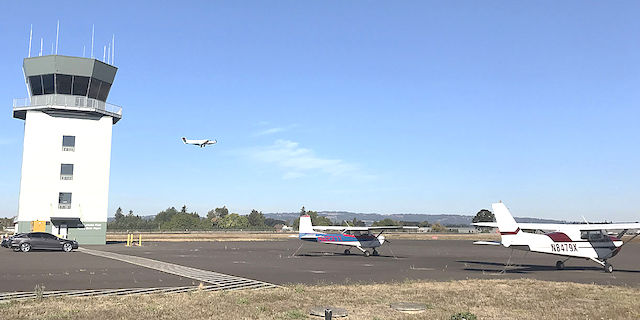Private Treaty February 2025
Pacific Cattle Angus, Sim-Angus, and Simmental range-raised production fall bulls available by PRIVATE TREATY FEBRUARY 2025 Carl Wisse • carl@pacificcattle.com www.pacificcattle.com • 509-539-6850 • Eltopia, WA
Published 11:51 am Thursday, February 6, 2025

A long-running dispute over an airport expansion in Oregon has given rise to a bill that would strengthen the enforceability of certain land use rulings.
Farmland preservation advocates claim House Bill 3013 merely closes a legal loophole under which proposed construction can go forward even if the state’s Land Use Board of Appeals has determined it has been approved unlawfully.
“This bill will eliminate the possibility that a developer can proceed with an illegal project in our communities,” said Rep. Courtney Neron, D-Wilsonville, its chief sponsor, during a recent legislative hearing.
Detractors argue the legislation would spur additional land use lawsuits and could lead to the costly demolition of projects before their legality has been fully adjudicated.
“Sensible developers will avoid Oregon because approvals will become uncertain and highly unpredictable,” said Betsy Johnson, a former lawmaker and gubernatorial candidate who opposes the bill.
The debate relates to improvements to the Aurora Airport, which critics allege will speed the conversion of surrounding farmland in the Willamette Valley.
One of the project’s critics filed a lawsuit seeking to enforce a LUBA decision, which had determined Marion County violated land use law by granting a permit, zoning change and other requests sought by the airport.
A state judge threw out the case because the plaintiff wasn’t a party directly involved in the airport expansion permits and agreements, and thus didn’t have legal standing to pursue the litigation.
The decision prompted the introduction of HB 3013 by farmland preservation advocates, who fear the ruling will shield developers from complying with LUBA orders.
“This ruling undermines the very purpose of land use appeals by allowing construction and permits to stand even if the land use decision is ultimately reversed,” said Rep. Neron, its chief sponsor.
Under HB 3013, such orders by LUBA would become “self-executing” by terminating permits and other authorizations the board has determined are unlawful.
The bill would also clarify that participants in land use procedures and LUBA cases have legal standing to pursue their claims in state court.
This change to standing requirements would provoke “a veritable tsunami of litigation” that could “envelop any project,” said Johnson, the former lawmaker.
Developers may also be forced to tear down structures and improvements that had been approved by a local government, based on a LUBA order that may not be the final word in the case, said Danielle Bethell, a Marion County commissioner.
“That is incredibly wasteful and creates major environmental risk,” Bethell said.
The bill would needlessly make sweeping changes to land use law due to disappointment over a “meritless” complaint, as LUBA orders can already be enforced, said Wendie Kellington, attorney for a proponent of the airport expansion.
The lawsuit sought to use “novel legal theories” to invalidate permits and agreements that weren’t encompassed by the LUBA order, which is why the case was thrown out, she said.
Supporters of HB 3013 deny the legislation relates only to the disputed airport expansion, arguing it’s needed to correct a broader problem with land use procedures.
If a developer’s original land use authorization is voided by LUBA, the bill makes clear that additional permits approved during the pendency of the appeal are also void, said Amanda Guile-Hinman, attorney for Wilsonville.
“This is not a bill to address one case. It ensures that all land use decisions are not circumvented by local administrative processes,” she said.
If construction begins while a project’s land use approval is under appeal, the developer must bear the risk of having to remove the structure if it’s ultimately found unlawful, according to written testimony from the 1000 Friends of Oregon nonprofit.
LUBA orders are rarely ignored by local governments and developers, “but it does happen, and that is a loophole that needs to be fixed for a functioning system, and which HB 3013 addresses,” the group said.